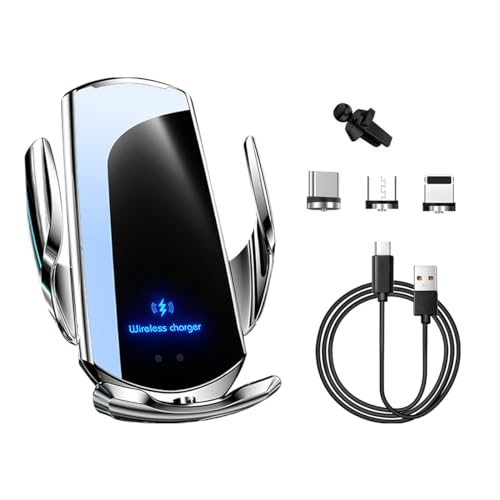It's hard for me to make an informed guess about your situation. I don't service these; I own one, and do a lot of reading about them, and I have experience both in the automotive industry and other disciplines to draw on, but I'm nothing like a expert, more of a well-informed generalist.
The "during hard acceleration" immediately brings to mind the prevalence of internal coolant leakage in the Drive Unit ("DU") and how coolant can move (slosh?) in the DU during driving. There's a lot of exposed circuitry on the inverter boards on that side of the DU, and one of them is down low. Coolant droplets (or more) moving around in the DU's inverter? Definitely sounds like an area where "intermittent" may come into play.
But, when the DU is drawing a lot of juice, the input voltage to the DC-DC drops, sure. How does that interact with how the DU triggers a shutdown ("neutral")? I've no good guesses, but I'd want to make certain that the battery voltage -- which is essentially the output of the DC-DC -- remains in the 11.5-14.5v range at all times.
If it was my vehicle sitting in my driveway, I'd buy a low voltage datalogger and monitor the battery voltage. If the DC-DC's output varies more than a couple tenths during any driving mode, I'd consider that suspect, but I'd also like comparative data from a well-functioning rig. Voltage dataloggers aren't all that expensive, esp. when facing a multi-thousand dollar repair bill. If the DC-DC output doesn't move much while driving, and a DU shutdown is triggered, I would not be looking hard at replacing a DC-DC. AFAIK, all the DC-DC Converter does by itself is provide the 12Vdc (nominal), besides the HV passthrough to the A/C and heater. And a datalogger would do an excellent job of determining if it's doing that job well. I can't think of other testing that would be needed to condemn or confirm its operation. Note that merely watching a voltmeter would likely not be a good way of doing this, because very short transient voltage changes are difficult to see visually, even with old-school mechanical movement analog voltmeters, and nearly impossible (for me) via modern digital VMs.
Once these cars are out of warranty, I suspect a lot of them are going to end up being sold for parts, as the available resources to troubleshoot and repair them are minimal. Unless you're an enthusiast, the path of least resistance is to move to another vehicle and leave the problems behind.
If the tech is certain that the DC-DC is at fault, it may be worth a roll of the dice, but dealers won't let you discuss directly with the techs so you can't get a feel of their certainty. Sometimes you'll get a clue via the tech's notes in your "file", but that's not much to base an expensive decision on.
My experience with auto repair facilities in general is that if they mis-diagnose an expensive problem, mostly they do not offer any compensation on the original repair; sometimes, you'll get a discount on subsequent parts replacement costs, but they are diagnosing via parts replacement at your expense. That's my experience from both sides of the transaction.
The "during hard acceleration" immediately brings to mind the prevalence of internal coolant leakage in the Drive Unit ("DU") and how coolant can move (slosh?) in the DU during driving. There's a lot of exposed circuitry on the inverter boards on that side of the DU, and one of them is down low. Coolant droplets (or more) moving around in the DU's inverter? Definitely sounds like an area where "intermittent" may come into play.
But, when the DU is drawing a lot of juice, the input voltage to the DC-DC drops, sure. How does that interact with how the DU triggers a shutdown ("neutral")? I've no good guesses, but I'd want to make certain that the battery voltage -- which is essentially the output of the DC-DC -- remains in the 11.5-14.5v range at all times.
If it was my vehicle sitting in my driveway, I'd buy a low voltage datalogger and monitor the battery voltage. If the DC-DC's output varies more than a couple tenths during any driving mode, I'd consider that suspect, but I'd also like comparative data from a well-functioning rig. Voltage dataloggers aren't all that expensive, esp. when facing a multi-thousand dollar repair bill. If the DC-DC output doesn't move much while driving, and a DU shutdown is triggered, I would not be looking hard at replacing a DC-DC. AFAIK, all the DC-DC Converter does by itself is provide the 12Vdc (nominal), besides the HV passthrough to the A/C and heater. And a datalogger would do an excellent job of determining if it's doing that job well. I can't think of other testing that would be needed to condemn or confirm its operation. Note that merely watching a voltmeter would likely not be a good way of doing this, because very short transient voltage changes are difficult to see visually, even with old-school mechanical movement analog voltmeters, and nearly impossible (for me) via modern digital VMs.
Once these cars are out of warranty, I suspect a lot of them are going to end up being sold for parts, as the available resources to troubleshoot and repair them are minimal. Unless you're an enthusiast, the path of least resistance is to move to another vehicle and leave the problems behind.
If the tech is certain that the DC-DC is at fault, it may be worth a roll of the dice, but dealers won't let you discuss directly with the techs so you can't get a feel of their certainty. Sometimes you'll get a clue via the tech's notes in your "file", but that's not much to base an expensive decision on.
My experience with auto repair facilities in general is that if they mis-diagnose an expensive problem, mostly they do not offer any compensation on the original repair; sometimes, you'll get a discount on subsequent parts replacement costs, but they are diagnosing via parts replacement at your expense. That's my experience from both sides of the transaction.

















